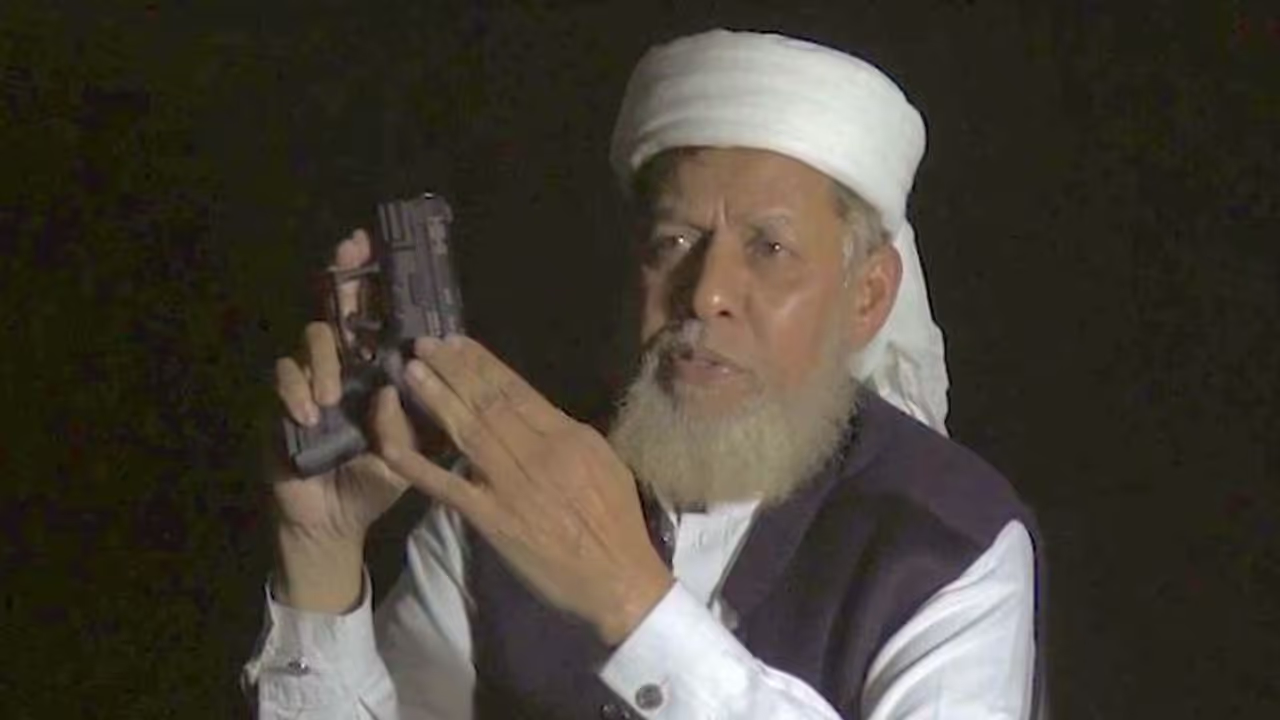Farhatullah Ghori, a wanted terrorist linked to various attacks, including the 2002 assault on Gujarat's Akshardham temple, has reappeared, advocating for war against India in a released video. Ghori had ties with Pakistan-based Lashkar-e-Taiba and Jaish-e-Mohammed
Terrorist Farhatullah Ghori, wanted by Indian agencies as the face behind several terror attacks, including the 2002 assault on Gujarat's Akshardham temple, has resurfaced by releasing a video urging war against India. Ghori, a prime target of Indian intelligence agencies, emerged back into the spotlight after his fingerprints were traced in multiple terror incidents. Delhi Police's special cell revealed last year that Ghori, posing as an Islamic State recruiter, was behind an ISIS-inspired module.

Recent intelligence reports suggest that numerous terrorist cells have been uncovered in India, with Farhatullah Ghori emerging as a central figure in these operations. According to sources within intelligence agencies, Ghori has been identified as the handler of several of these modules. The involvement of Ghori, who has ties to organizations like Lashkar-e-Taiba and Jaish-e-Mohammed.
Remaining elusive until 2019, Ghori reappeared online, using platforms like Telegram to disseminate radical propaganda and evade capture. Despite being designated an individual terrorist by the Indian Home Ministry in 2020, Ghori operated clandestinely from Lahore, maintaining a low profile.
The release of the latest video featuring Ghori is seen as an attempt by the ISI to distance itself from any allegations regarding Ghori's involvement in terrorist activities within India. By showcasing Ghori as an individual operating outside Pakistani jurisdiction, ISI seeks to shield itself from accountability.
Furthermore, Pakistan has a history of disowning individuals like Ghori when they come under scrutiny from India. They often claim that such individuals are not Pakistani citizens but residents of India, thereby absolving themselves of any responsibility.
The implications of Ghori's involvement extend beyond mere propaganda. ISI aims to establish a new sleeper cell network for terrorism within India, leveraging Ghori's extensive connections in South India. These connections have been exploited by Pakistani intelligence for years to orchestrate terrorist attacks in the region.
His sudden video appearance is suspected to be part of an ISI plot aimed at disturbing communal harmony ahead of the Lok Sabha elections. This move could potentially allow Pakistan to disown him, claiming he was an Indian fugitive, thereby evading responsibility amid pressure from organizations like the FATF.
Indian intelligence agencies have been actively combating Ghori's online presence, blocking Facebook pages and Telegram channels associated with him. Telangana's counter-intelligence unit intensified efforts to apprehend him, as Ghori not only radicalized youths under the guise of IS but also promoted pages linked to JeM and al-Qaida.
Moreover, Ghori is alleged to engage in terror financing, utilizing a network of social media accounts to incite Indian Muslim youths to rebel against their country. The recruitment process reportedly involves transferring small amounts through hawala channels.
